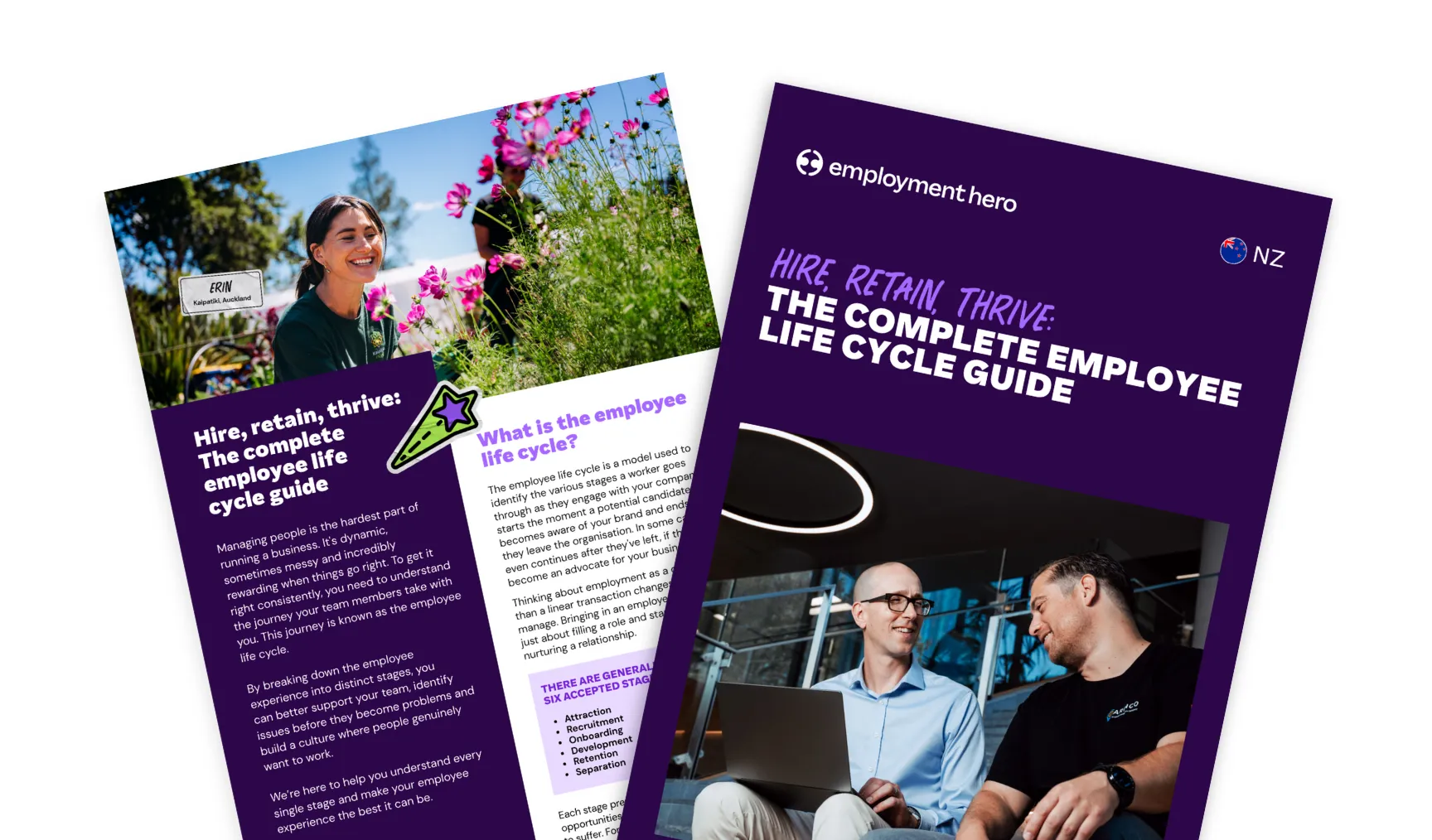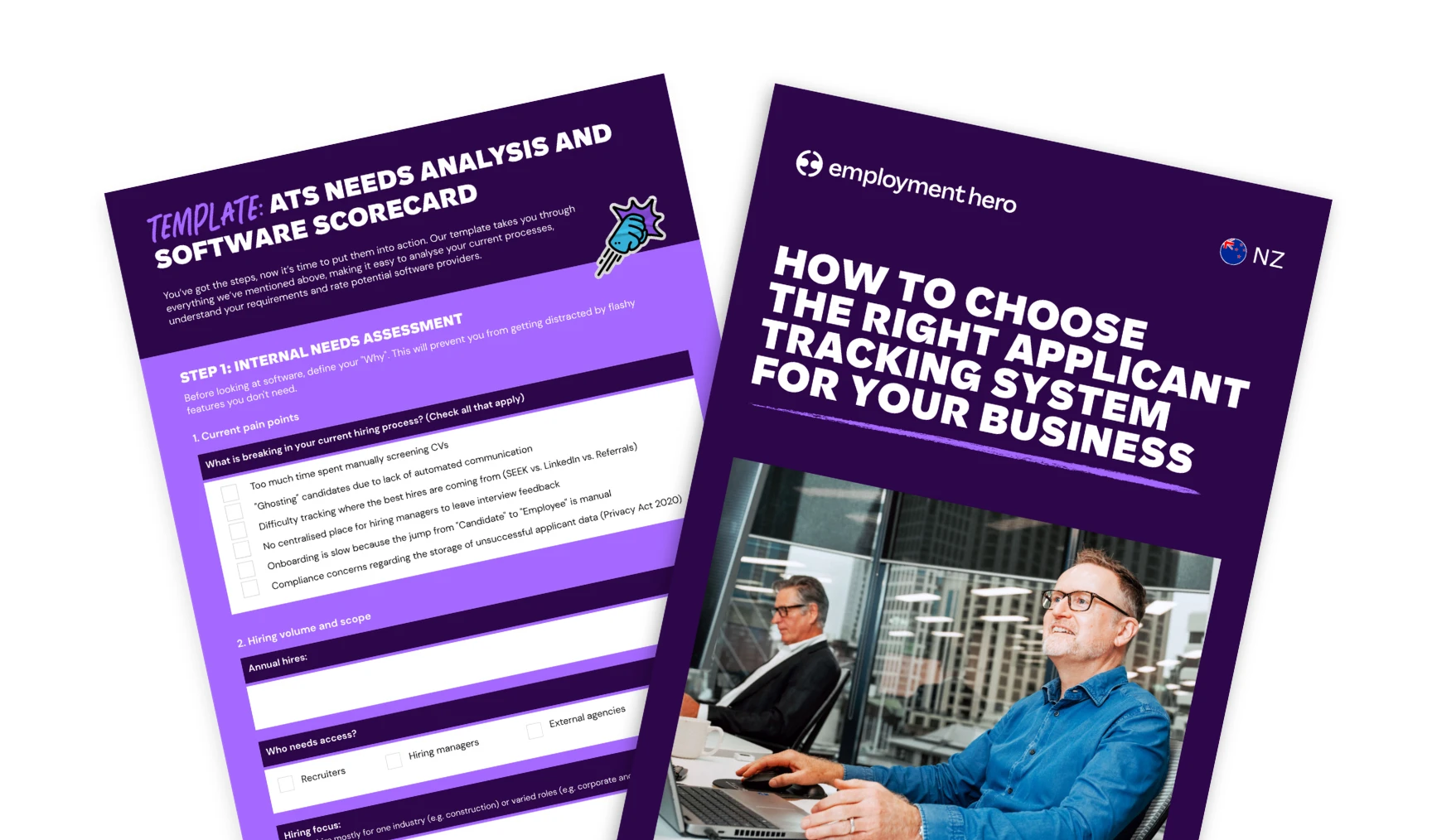Public holiday entitlements in New Zealand: Employer factsheet
Published
Public holiday entitlements in New Zealand: Employer factsheet
With no less than 12 public holidays per employee every year, we do love our long weekends in New Zealand. However, as an employer, there are quite a few legal considerations to be across when managing public holidays. That’s why we’ve created this factsheet, to parse the Holidays Act (2003) guidelines and set out Employment New Zealand’s advice.
Our factsheets includes:
- New Zealand’s public holiday dates
- Employee entitlements
- What happens if a public holiday falls on a weekend
- How to define an ‘otherwise working day’
- How to calculate public holiday leave pay
- Mondayisation
- Answers to other frequently asked questions by employers
Public holiday entitlements
All employees have some basic entitlements around public holidays, including whether they have to work and what they can take as leave.
Taking a public holiday as a day of leave
When an employee doesn’t work a public holiday because it’s an ‘otherwise working day’, for them, they are entitled to a paid day off. This should be paid at their Relevant Daily Pay (RDP), or Average Daily Pay (ADP) if they have variable hours.
An ‘otherwise working day’ is one that the employee would normally have worked. It can be determined by looking at the employee’s employment agreement, their work patterns, rosters, or other agreements.
Working on public holidays
An employee can work on a public holiday but this needs to be specified in their individual employment agreement. By working a public holiday, they’re entitled to at least time and a half pay for the hours they’ve worked.
They’re also entitled to an alternative holiday (sometimes referred to as a day in lieu) if it’s a day they’d otherwise be working.
Typically, an employee can choose whether to work on a public holiday or not. They can only be compelled to work on a public holiday if it would be an ‘otherwise working day’ for them and if their employment agreement says they have to work on that public holiday.
Pay rates
If your employee takes the public holiday off, they must be paid either their Relevant Daily Pay (what they would have been paid that day) or their Average Daily Pay (daily average of their gross earnings over the past 52 weeks).
Time off
If you need your employee to work on the public holiday, then they are typically entitled to an alternative holiday. Your employee can also request to work the public holiday, and transfer it.
If your employee is transferring the public holiday, it’s important to get this in writing, whether in their employment agreement, or a separate agreement.
To transfer the holiday, the day picked:
- Must be a normal working day for them
- Must not be another public holiday
- Must not reduce the number of public holidays the employee gets
Dates for 2026 public holidays in New Zealand
New Year’s Day – Wednesday 1 January 2026
Day after New Year’s Day – Thursday 2 January 2026
Waitangi Day – Thursday 6 February 2026
Good Friday – Friday 18 April 2026
Easter Monday – Monday 21 April 2026
Anzac Day – Friday 25 April 2026
King’s Birthday – Monday 2 June 2026
Matariki – Friday 20 June 2026
Labour Day – Monday 27 October 2026
Christmas Day – Thursday 25 December 2026
Boxing Day – Friday 26 December 2026
Mondayisation
If a public holiday falls on a weekend then it may get moved to the following Monday (or in some situations, Tuesday). This is referred to as Mondayisation.
To determine when your employee gets the public holiday:
- If they work Monday to Friday, their their public holiday entitlements get applied to the Monday (or Tuesday) following the public holiday
- If they work on the day of the public holiday, their entitlements apply that day
If your employee works both the day of the public holiday and the Mondayisation date, then they get their entitlements on the calendar date. They are not entitled to two public holidays.
If your employee’s work pattern varies then you’ll need to agree on whether a public holiday is a day they’d otherwise be working.
Employment NZ has a series of questions to help you determine whether a public holiday is Mondayised (or Tuesdayised in certain circumstances).
Public holidays during leave
If a public holiday falls within an employee’s leave, then they may have public holiday entitlements. Here’s how each type of leave affects their public holiday entitlements.
Annual leave: They get public holiday pay and they don’t lose a day of annual leave.
Parental leave: You don’t need to pay an employee for any public holiday during their parental leave.
Sickness, injury, bereavement or family violence leave: Your employee does not lose a day of annual holidays. Instead that day is treated as a public holiday that they’ve taken. They should be paid their relevant daily pay or average daily pay (depending on what’s higher) but they’re not entitled to time and a half or an alternative holiday, as they did not work that day.
Unpaid leave: You don’t typically need to pay an employee for any public holiday during unpaid leave. However, if the public holiday falls on an otherwise working day, and they are on unpaid sick, bereavement or family violence leave, then they are entitled to public holiday pay.
Alternative holidays
As an employer, you have a couple of responsibilities when your employee works a public holiday and then takes their alternative holiday. You need to:
- Pay your employee’s RDP (or ADP if applicable) for the hours they would have worked on the day they take their alternative holiday. This does not take into account the amount of hours they worked on the public holiday. For example, if they get an alternative holiday for working four hours on Waitangi Day, and take the alternative holiday on a day they would have worked six hours, then they get paid for six hours.
- Make sure their alternative holiday pay is made in the pay period when the holiday is taken.
- If their alternative holiday is not taken within 12 months, by mutual agreement, pay out the alternative holiday.
- At the end of an employee’s employment, if they have an alternative holiday they have not taken, pay it out at the rate of their RDP (or ADP if applicable) based on their last day of employment.
New Zealand Anniversary days in 2026
Different regions of New Zealand have different anniversary dates, which are treated as public holidays. All employees are entitled to the one that applies to the region they work in. Here’s when each region will observe their anniversary day in 2026:
Auckland – Monday 26 January
Canterbury (South) – Monday 28 September
Canterbury – Friday 13 November
Chatham Islands – Monday 30 November
Hawke’s Bay – Friday 23 October
Marlborough – Monday 2 November
Nelson – Monday 2 February
Otago – Monday 23 March
Southland – Tuesday 7 April
Taranaki – Monday 9 March
Wellington – Monday 19 January
Westland – Monday 30 November
How payroll software helps manage public holiday entitlements
At Employment Hero, our payroll software makes it easy to manage public holiday entitlements. Our software automates calculation, tracking and record-keeping based on New Zealand legislation and employee settings. The software gives you information you need for the “otherwise working day” test, and makes it easy to calculate Relevant Daily Pay or Average Daily Pay (depending on what’s applicable).
Need help with managing your area’s public holiday calendar? Our software automatically accounts for region-specific holidays, so you don’t get caught out.
Download the public holiday entitlements factsheet
Looking for more help getting your head around public holiday entitlements? Our easy-to-understand factsheets contains the key information you need to know to manage public holidays with ease.
The information in this article is current as at 30 October 2025, and has been prepared by Employment Hero Pty Ltd (ABN 11 160 047 709) and its related bodies corporate (Employment Hero). The views expressed in this article are general information only, are provided in good faith to assist employers and their employees, and should not be relied on as professional advice. Some information is based on data supplied by third parties. While such data is believed to be accurate, it has not been independently verified and no warranties are given that it is complete, accurate, up to date or fit for the purpose for which it is required. Employment Hero does not accept responsibility for any inaccuracy in such data and is not liable for any loss or damages arising directly or indirectly as a result of reliance on, use of or inability to use any information provided in this article. You should undertake your own research and seek professional advice before making any decisions or relying on the information in this article.
Please fill out a few short details
Related Resources
-
 Read more: Hire, retain, thrive: The complete employee life cycle guide
Read more: Hire, retain, thrive: The complete employee life cycle guideHire, retain, thrive: The complete employee life cycle guide
Learn the full scope of the employee life cycle and how it impacts recruitment, onboarding and retention.
-
 Read more: How to choose the right ATS for your business
Read more: How to choose the right ATS for your businessHow to choose the right ATS for your business
Learn how to choose the right applicant tracking system. Explore features, vendor questions, red flags, and comparison tips in this…






















